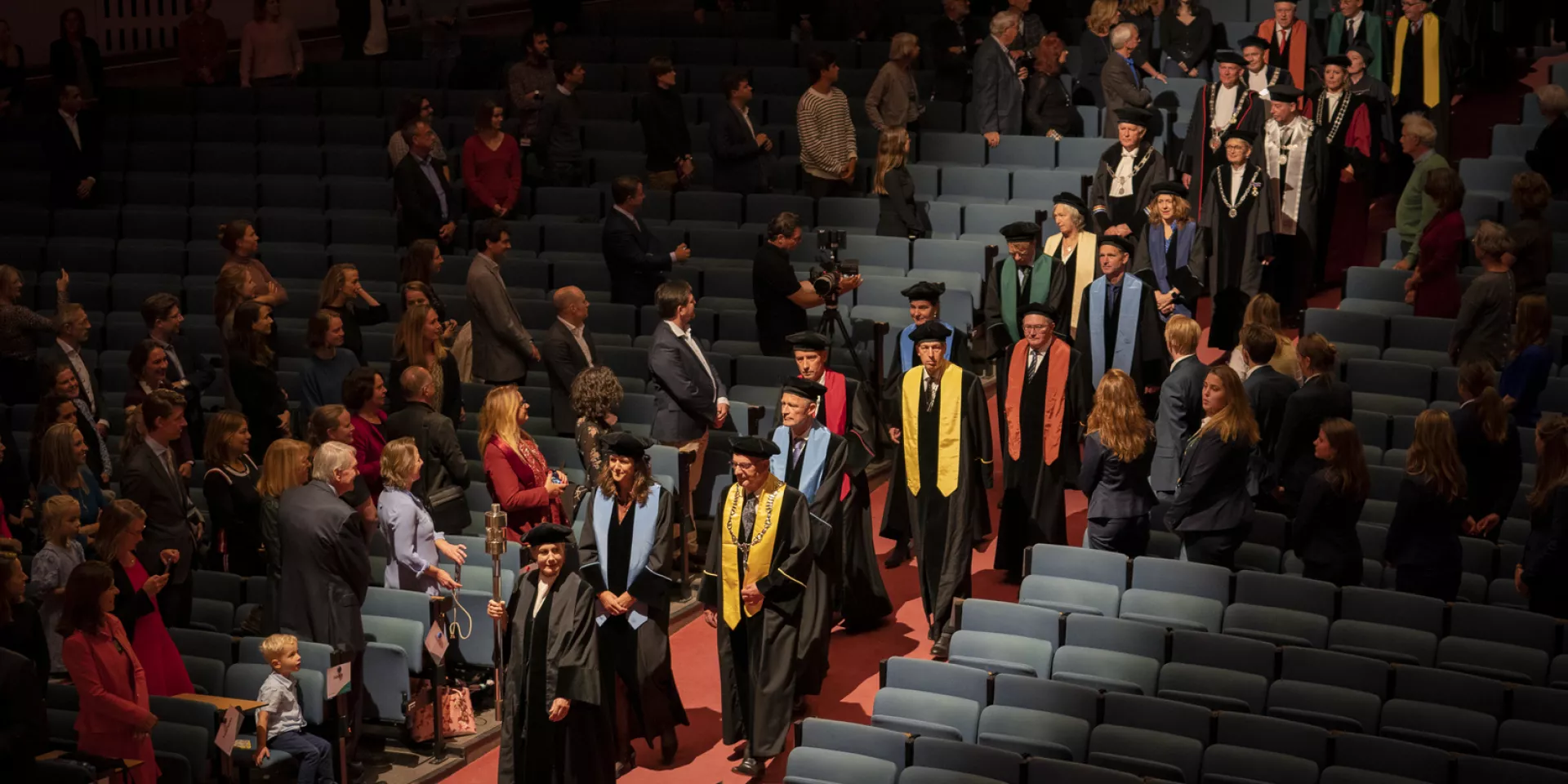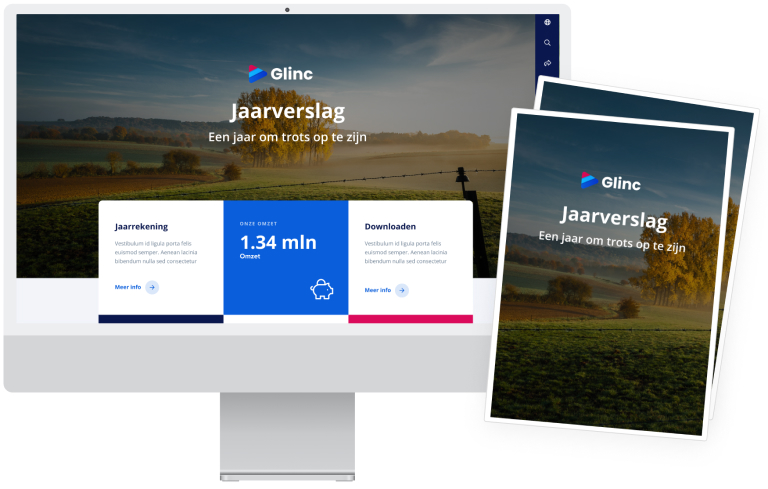
Introduction
The corona crisis (further referred to as: COVID-19) was a major influence on our actions, also in 2021. Measures were introduced and phased out at a quick pace, and the academic community was constantly forced to adapt accordingly. However, the crisis has not refrained us from fulfilling our role and continuing to focus on our mission 'creating positive social impact' in 2021. The pandemic has emphatically demonstrated that we can only meet such societal challenges with an interdisciplinary approach, based on different scientific disciplines and on a strong connection with society and social actors. Our unique profile enables us to make a difference in solving major social, economic and environmental challenges based on our forward-looking education and excellent academic research, and connecting knowledge to society.
With our mission as our compass and Strategy24 as our path, our mindset and actions are guided by the values that we propagate at Erasmus University Rotterdam (EUR). In 2020, the first year of implementing our strategy, we focused mainly on getting the initiatives up and running and setting up the programme organisation. As early as 2021, we achieved the first visible results, many of which were realised in co-creation and collaboration with the EUR community.
The past year was important in further creating preconditions for impact at EUR. Among other things, this was realised by preparing the EUR-wide vision for Recognition and Appreciation, which was crafted in an intensive collaboration among the faculties. After all, our staff and students make a difference when it comes to impact. Recognising and valuing our scholars differently is essential in this context. It also added an important meeting place for EUR. The introduction and launch of the Design Impact Transition (DIT) platformoffers the opportunity to start having more practice in the field of interdisciplinary collaboration for research and education related to design, transition and sustainability.
Being in the centre of society is fundamental to our university’s strategy. Not only in the city, but also on a regional, national and international level. In 2021, we made great progress in such collaborations with different disciplines, universities and stakeholders. A great example is Convergence, a successful strategic partnership between TU Delft, Erasmus MC and EUR. It serves to address social issues in the areas of climate, sustainability, pressure on the healthcare system, urbanisation and digitisation. The joint Pandemic & Disaster Preparedness Centre (PDPC),dedicated to reducing risk and preventing future disasters, officially launched in May. Another Convergence Initiative, Healthy Start,aims to break the unequal starting position of children and young adults in the Rotterdam region. This effort is based on research combined with civic engagement and a comprehensive education programme. A partnership with the Universities of Leiden and Delft (LDE) is also taking shape, based on the four themes Sustainable Society, Inclusive Society, Healthy Societyand Digital Society. This involves close cooperation with social partners in the South Holland region (municipal and provincial authorities).
Pursuant to Strategy24, we also intensified international cooperation with various partners. This was in part based on Chairing the European Universities UNIC, in which eight, and soon ten, European universities are creating a positive impact on the post-industrial cities in which they are located through inclusive education, innovative research and involvement of local partners.
In the area of operations, the increasingly active collaboration within the EUR community takes centre stage. Numerous improvement proposals have been initiated through the first StepUp Open Callfor further development of Professional Services. Initiatives such as these involve collaboration of business management professionals with academy colleagues. In terms of sustainability, we took a big step forward by defining a new travel policy, replacing air travel with train travel as much as possible. This allows us to substantially reduce our CO2 footprint and take responsibility for sustainable mobility. These are just a few examples of how EUR translates its strategic objectives into practice.
In this context, it is also good to continue being aware that the goals we set for ourselves in relation to our environment are partly dependent on the growth we experience as a university. The number of new students we are privileged to welcome into the EUR community has been increasing for years. On the one hand, growth brings new opportunities and development, but unrestrained growth also brings challenges. The increasing inflow of students, many of them of international origin, is a challenge that other Dutch Universities are also facing, now and in the coming years, which may cause tensions in the long run. There are currently few ways to manage student flow. This may also create dilemmas within EUR, for example with regard to the quality of the educational range and the workload of staff members. But we are also already seeing dilemmas arise in the context of the city of Rotterdam, for example in the area of student housing. We will need to find solutions for controlling the inflow in the coming years in cooperation with the government and the other universities.
Despite the restrictions as a result of the Covid period, we remained fully committed to high-quality, solid education, on-site where we could, online where we had to. Our teaching and research maintained its high quality, even though it was not always easy for staff and students. We have done our utmost to make hybrid work and study a success.
I am extremely proud of our very large and extremely involved alumni network at home and abroad, as they contribute every day to the social impact we stand for at EUR. Under the direction of our Erasmus Alumni Relations Team, an increasing number of chapters are created, in which alumni all over the world unite and propagate the ideas of their alma mater. This literally gives a face to our philosophy of ‘being an Erasmian’.
A great example of this impact and their involvement is the 'value chain’ series, in which alumni show how they contribute to society and what drives them to do so by sharing videos.
During the past year, we welcomed new Trustees into our midst. Within the Board of Trustees, Ellen van Schoten joined as Vice-President and Annelien Bredenoord as the first female Rector Magnificus of our university. We said goodbye to Frank van der Duijn Schouten and thanked him for the excellent interim performance as Rector Magnificus. We were able to welcome Martine van Selm and Stefan Sleijfer, respectively as Dean of the Erasmus School of History, Culture and Communication (ESHCC) and Vice-President and Dean at Erasmus MC.
With pleasure and pride, I look back on how EUR community has remained a close-knit and cohesive community despite the challenges. We have been able to overcome the barriers inherent to communicating via screens, and intensified collaborations, both inside and outside the university. Therefore, I am confident that we will only increase our contribution to high-quality and high-impact education and research in the future.
Ed Brinksma, Chair of the Board of Trustees, Erasmus University Rotterdam
